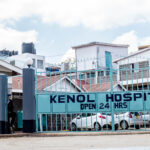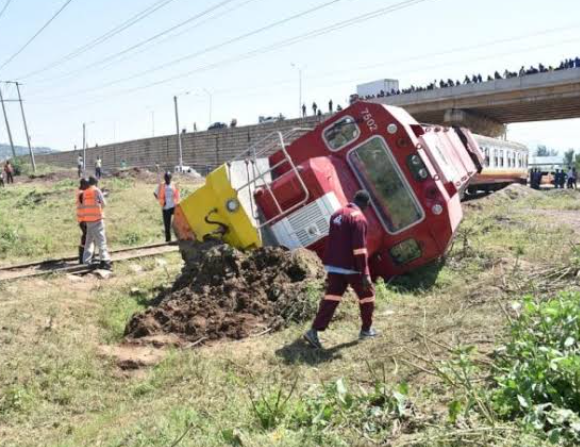A tragic accident occurred today when a train traveling from Limuru to Nairobi struck a pedestrian just after Kikuyu railway station.
The man was walking between the railway tracks when he was hit by the train, highlighting significant flaws in emergency response and safety measures.
The immediate response from both the police and Kenya Railways has drawn sharp criticism.
Witnesses reported a noticeable delay in the arrival of emergency services, and the overall handling of the situation was seen as inadequate.
The lack of a quick and effective response could have serious implications for the injured individual’s chances of survival and recovery.
Despite these challenges, the police from Kikuyu managed to remove the injured man from underneath the train.
However, this process was not as efficient or safe as it should have been, largely due to the lack of proper equipment and training for such emergencies.
This incident underscores the urgent need for Kenya Railways to enhance its emergency response capabilities.
All trains should be equipped with comprehensive emergency kits, including first aid supplies and tools for safely handling accidents.
Additionally, railway staff must receive regular training on how to respond to emergencies effectively.
Better coordination between Kenya Railways and local emergency services, such as police and medical teams, is essential to ensure a swift and efficient response to any future incidents.
Improving these protocols can help prevent similar accidents and ensure that, when they do occur, they are managed in the best possible manner to minimize harm.
The train accident near Kikuyu has revealed critical shortcomings in the current emergency response system.
Immediate improvements are necessary to enhance safety measures and preparedness, ensuring that all passengers and pedestrians are better protected in the future.





















Add Comment